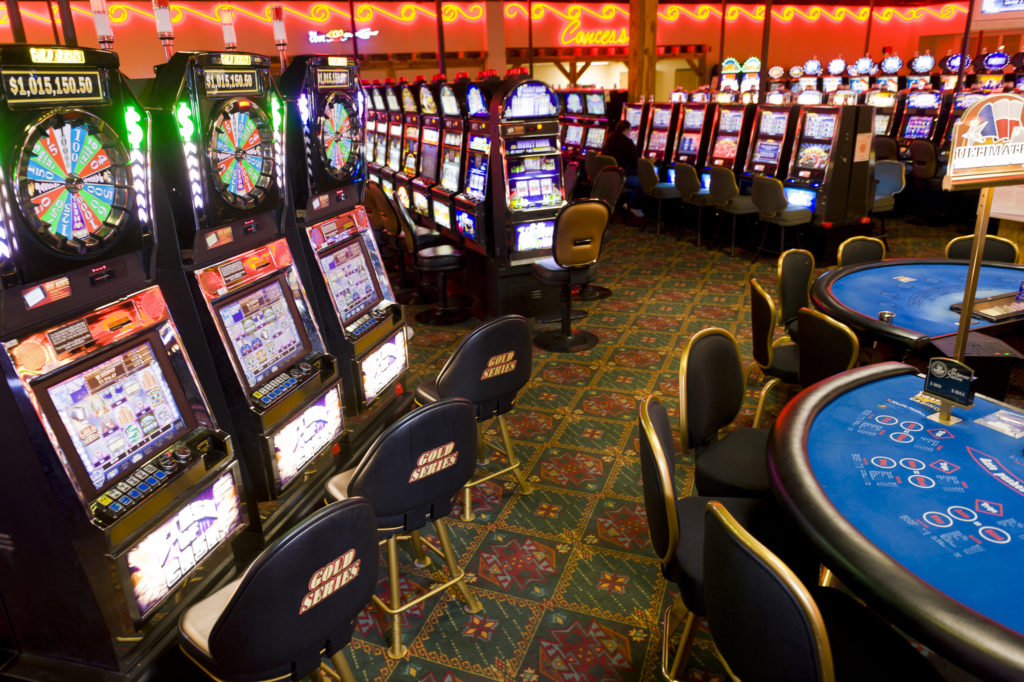Casino slot games have captivated players for decades, pulling them into a world of blinking lights, enticing sounds, and the thrill of chance. These machines, often found in vibrant casinos, combine aspects of chance and strategy, making them an exciting option for beginners and experienced players alike. But what is it that makes these games so appealing? The answer lies in the complex psychology at play as individuals engage with these vivid reels.
Regardless of whether it’s the rush of anticipation while waiting for the result of a spin or the euphoric feeling of a large win, the psychological response elicited by casino slots is significant. The design of these machines is meticulously crafted to stimulate the brain’s reward system, creating an event that can be both thrilling and compulsive. Understanding the mental factors behind playing casino slots games can provide insight into why so many people are drawn to them and how they affect actions and decision-making in the gambling environment.
Comprehending the Allure of Slot Machines
Slot machines have a unique capability to enthrall players with their lively visuals and alluring sounds. The dazzling lights and enthralling themes create an inviting atmosphere that draws people in. Each spin of the reels promises the potential of a huge win, sparking a sense of excitement and expectation that keeps players returning for more. This sensuous experience plays a key role in the attraction to casino slots games, as it engages not only the intellect but also the emotions.
A major factor contributing to the allure of slot machines is the idea of immediate gratification. Differing from other casino games that require skill or strategy, slots offer instant results with each spin. The rapid pace of the game allows for swift engagement, enabling players to experience the excitement of winning or the disappointment of losing in a matter of seconds. This immediate feedback loop can lead to a extremely compulsive experience, as players pursue the next likely payout while being fascinated by the game’s constant opportunity for adventure.
Moreover, the psychology of jackpot potential cannot be overlooked. The allure of hitting a life-changing payout keeps players revisiting, often outbalancing the odds against winning. Many players find themselves hoping about the possibility of striking it rich, fueled by stories of winners who have won large. This sense of optimism, combined with the rush of the game, creates an compelling lure that defines the world of casino slots and makes them a popular among gamblers.
The Role of Reinforcement in Gambling
The role of reinforcement plays a critical role in the psychology of engaging with casino slots games. When players participate with these machines, they experience various forms of reinforcement that can influence their behavior. Positive rewards is particularly effective; winning, or even the chance of winning, can create a rush that keeps players revisiting for more. The instant response from the reels rotating, coupled with sounds and graphics, further enhances this rewarding experience, reinforcing the urge to continue playing.

The unpredictability of success in casino slots games also ties into the concept of variable reinforcement. This psychological phenomenon happens when rewards are given out at irregular intervals, making the expectation of a potential win more thrilling. Players may go for long periods without major wins but are drawn back by memories of past jackpots or the possibility of future ones. This variability heightens excitement and keeps players waiting for that upcoming win, embedding them deeper into the betting cycle.
Finally, the communal element of playing casino slots games can amplify reinforcement. Many players enjoy the communal atmosphere of a casino, where they might see others winning, celebrate wins, or even sympathize over losses. This social reinforcement can create a shared experience that encourages repeated play. Players might feel motivated to continue not only for personal gain but also to experience the camaraderie that comes with gambling, reinforcing their connection to the game.
The Impact of Casino Game Design on Player Behavior
The design of casino slots games plays a crucial role in influencing player behavior and improving the overall gameplay experience. Features such as visuals, audio, and storylines are deliberately crafted to attract players and maintain them involved. Bright colors and appealing animations create a visually stimulating environment that can lead to prolonged play sessions. Additionally, concepts ranging from ancient civilizations to popular culture cater to different interests, making the games attractive to a broad audience. This targeted design promotes players to spend more hours and money into the gaming experience.
Another important aspect of game design is the implementation of incentive structures and features like extra rounds or complimentary turns. These elements are crafted to produce a feeling of excitement and anticipation, which can induce the release of pleasure hormones in the brain. This chemical reaction reinforces the behavior of playing by associating the game with enjoyable feelings. đá gà thomo By offering attractive rewards, casinos motivate players to continue playing, which often leads to higher betting and extended gameplay. The psychological thrill of potentially hitting a jackpot or unlocking a special feature keeps players coming back for more.
Lastly, the social elements integrated into slot games can also affect player behavior. Many contemporary slots feature options that allow players to connect with others through rankings or collective goals. This social aspect can enhance the overall experience, as players may feel a sense of community or competition that motivates them to participate more deeply. The mix of individual excitement and social interaction creates a lively environment that not only entertains but also encourages consistent gameplay, further illustrating how thoughtful game design can greatly impact player behavior.